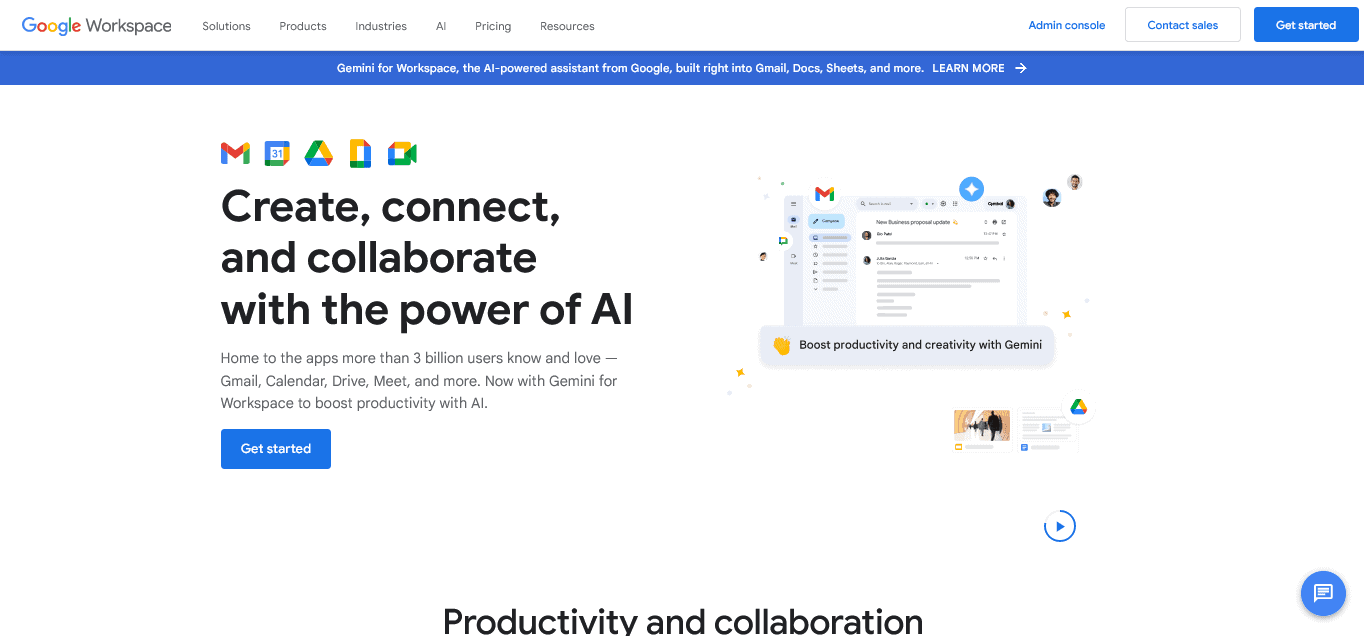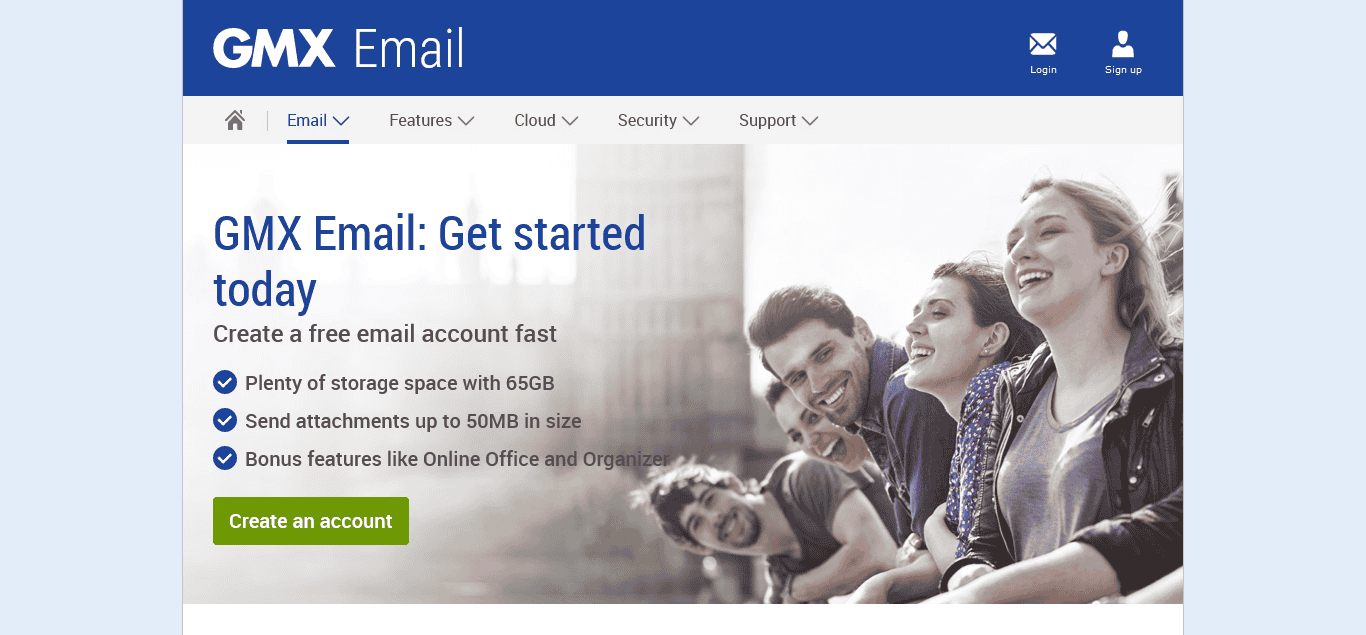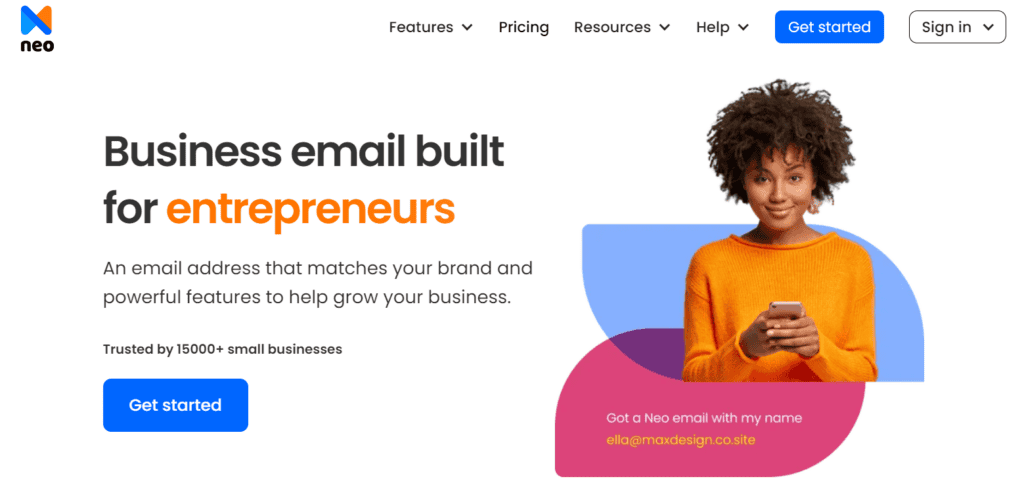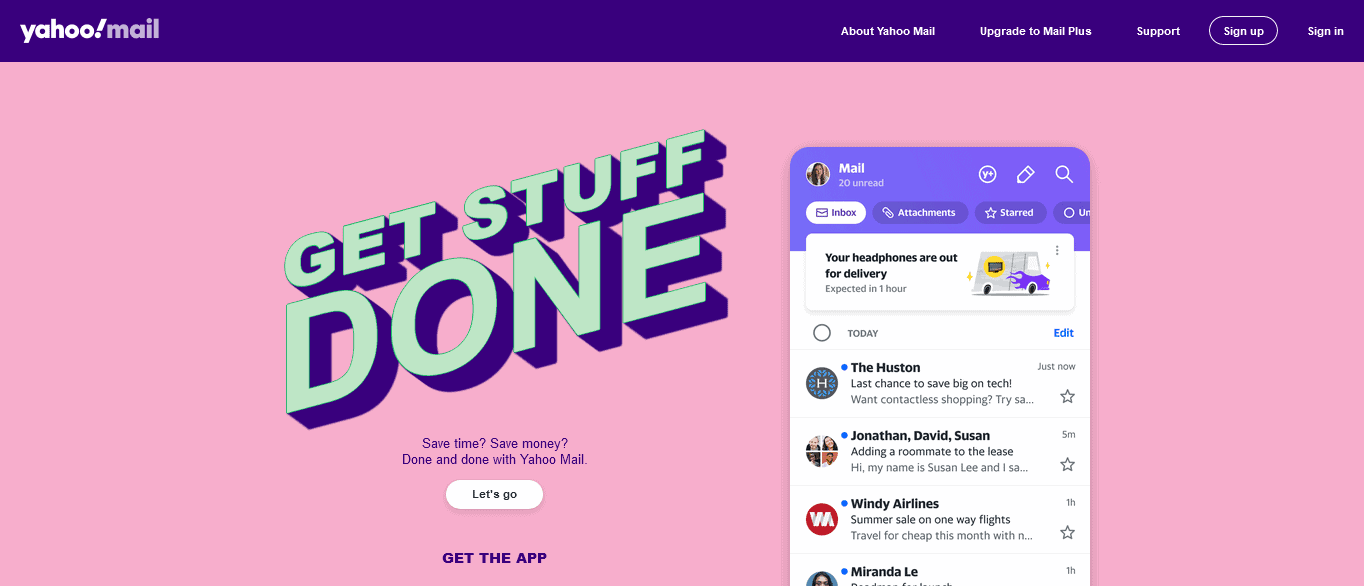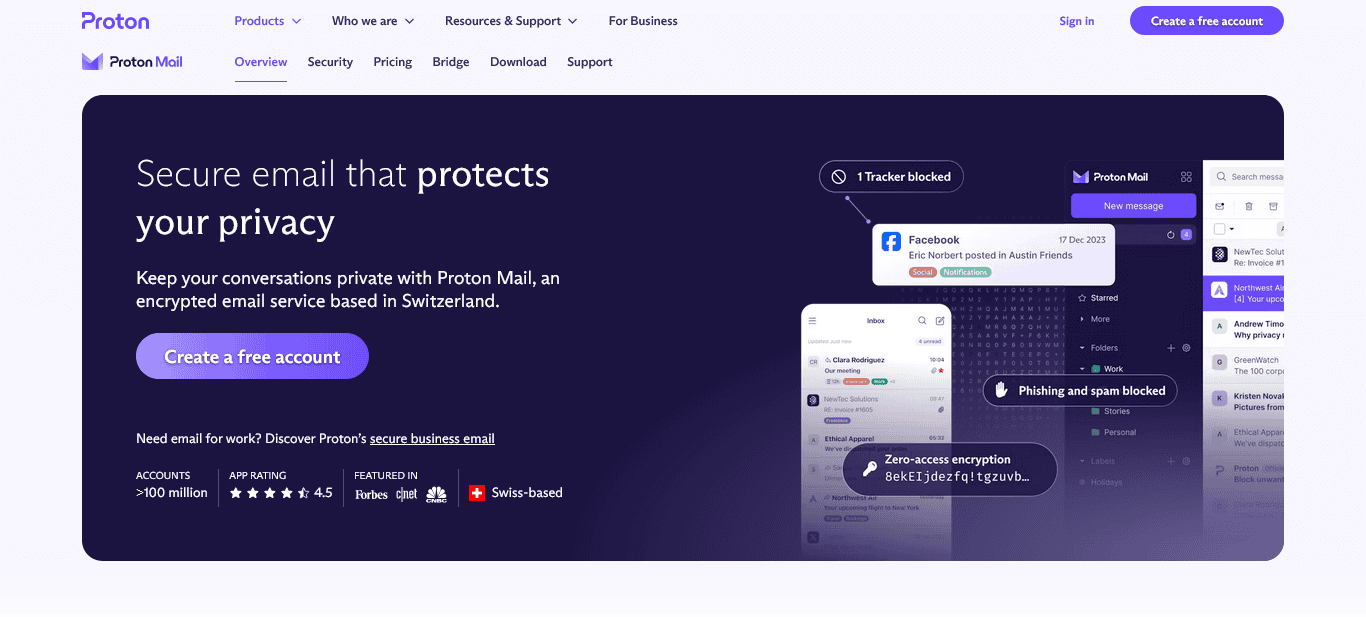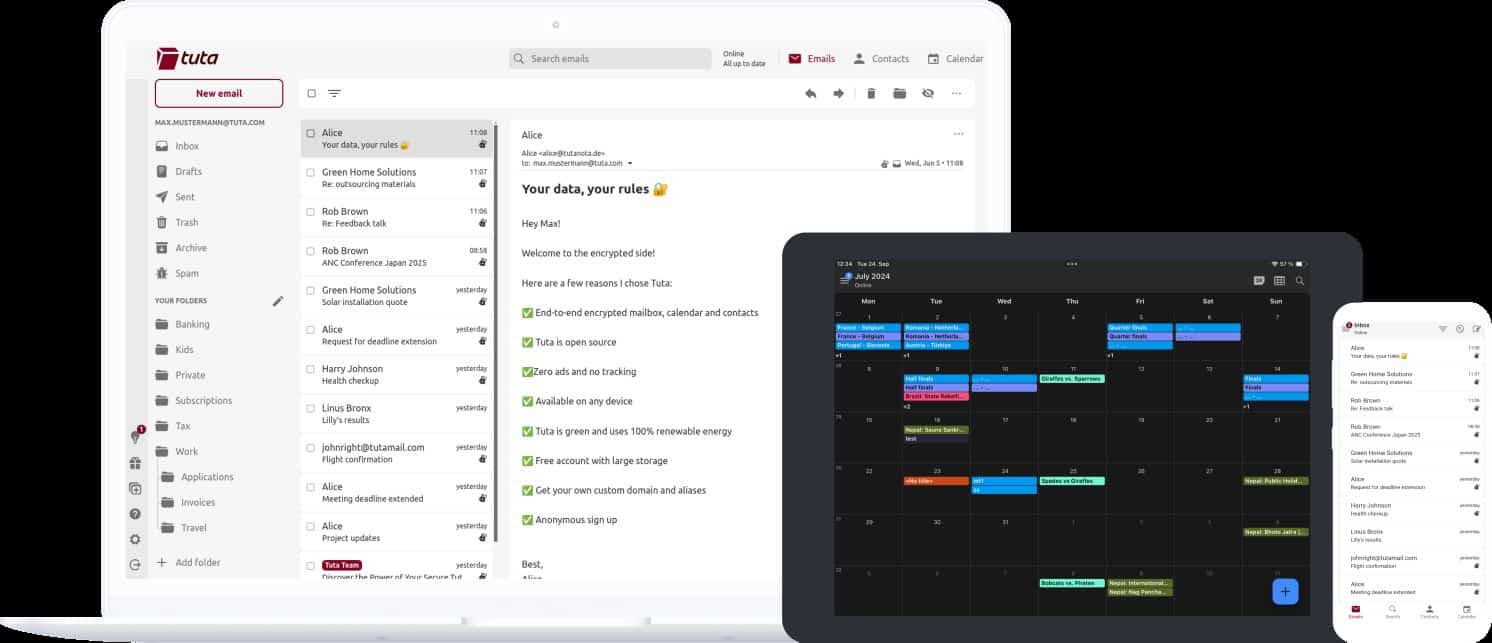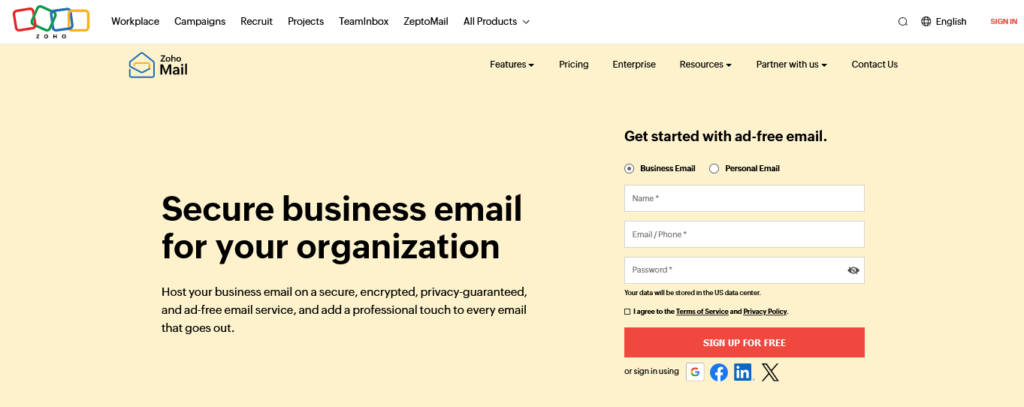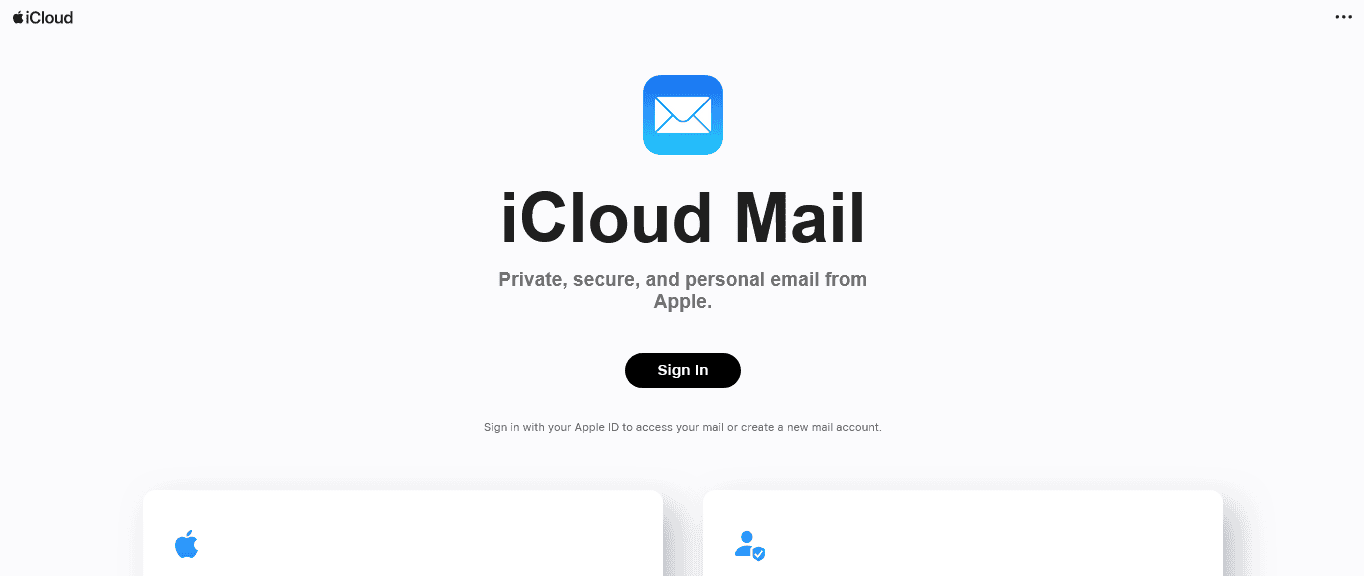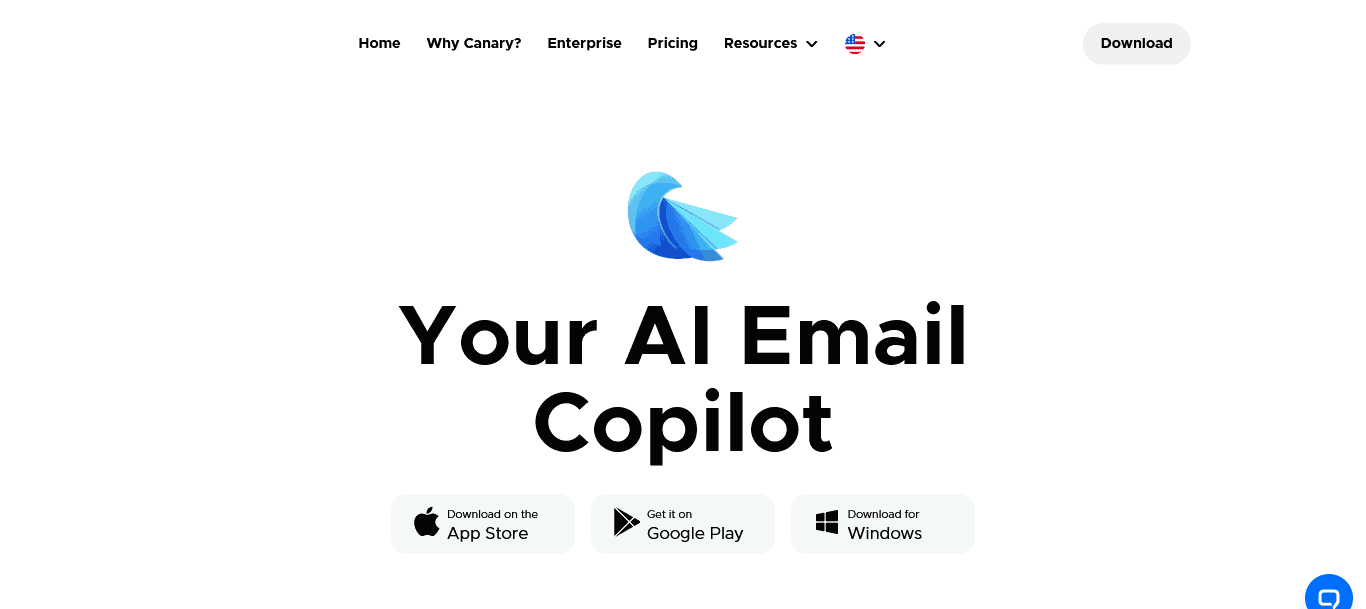Research shows that the number of email users worldwide is approximately 4.5 billion, projected to grow to over 4.8 billion by 2027. This proves how email is an essential part of communication for most individuals and businesses in different sectors.
Email providers send, receive, and manage emails. The significance of choosing the right email provider cannot be overstated. A reliable email service provider ensures that messages are delivered promptly and securely. It also streamlines workflows and saves valuable time for employees.
In this article, you will learn more about what makes an email provider the best for small businesses. This blog post will also cover the following:
- Key considerations when choosing an email service provider
- Why email communication is essential for small businesses
- Examples of popular email service providers for small businesses
- Advantages and disadvantages of paid vs free email service providers
Table of Contents
Why Email Communication is Essential for Small Businesses
Email communication is essential for any modern small business because it allows quick internal and external communication. Regardless of your business niche, email communication offers a cost-effective platform for marketing, customer engagement, brand building, sales conversion, and much more.
Establishing a strong email communication system within your organization can improve business operations and increase productivity. To fully grasp why email communication is essential, let’s examine its role in every small business.
1. Business Operations
Whether you run a coffee shop or a travel agency, email communication helps you seamlessly communicate with your employees. In addition to employees, you can also communicate with external stakeholders, vendors, and clients.
2. Customer Service
Nothing’s better than a timely response from customer service to a customer who inquired. Email communication makes customer service easy, enabling businesses to respond to customers’ issues promptly. You can also manage appointments, reservations, and schedules through email marketing to enhance your business’s operational efficiency.
3. Marketing
Email communication provides a direct, cost-effective channel for reaching existing and potential customers with targeted content. It enables you to engage with customers at scale on a personalized level.
Key Considerations When Choosing an Email Provider
When choosing an email service provider, several factors must be considered to ensure you decide on one that meets your business needs. Let’s look at each of these considerations one by one.
Storage capacity
It is crucial to check for the GB of free storage available. This ensures users can store their emails and attachments without constantly managing their mailbox size.
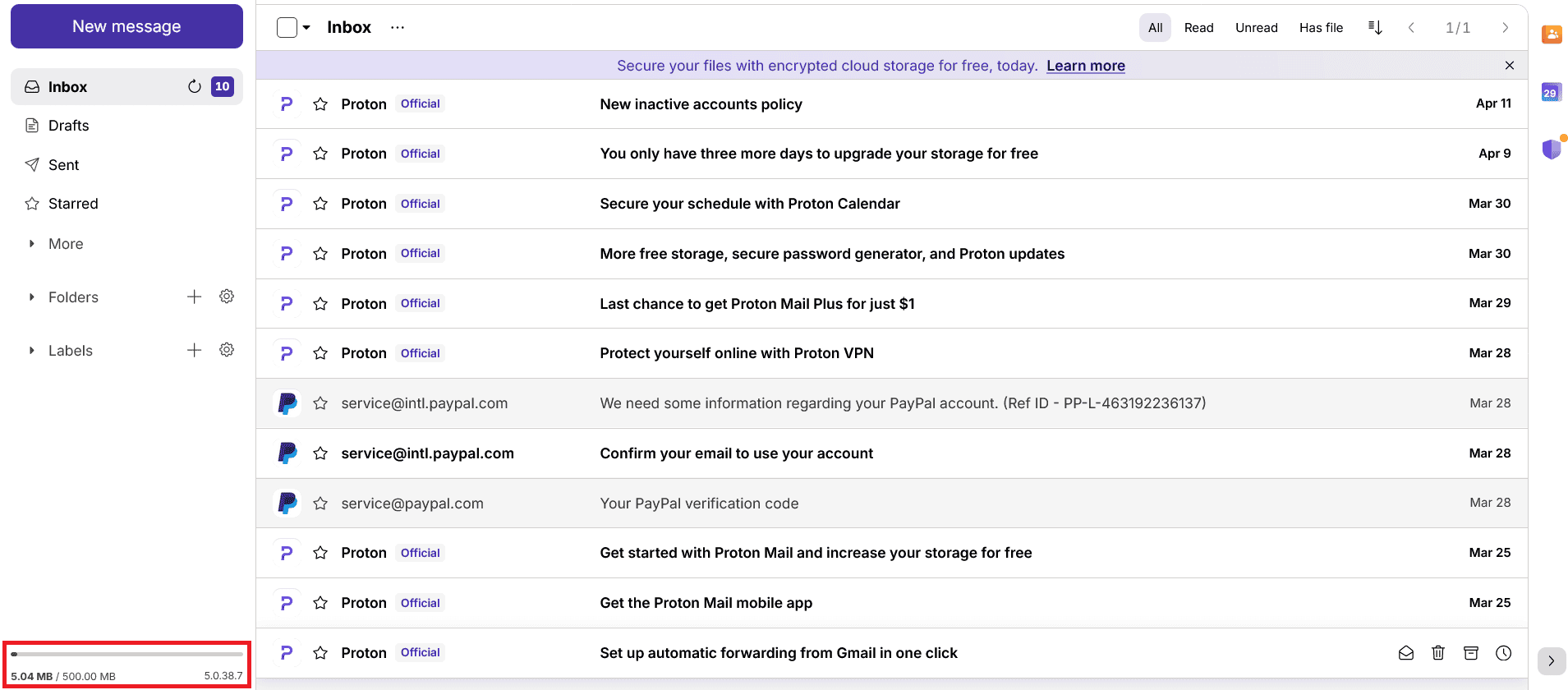
For example, the free version of Proton Mail has a 500 MB storage capacity, while Gmail has a 15GB free storage capacity.
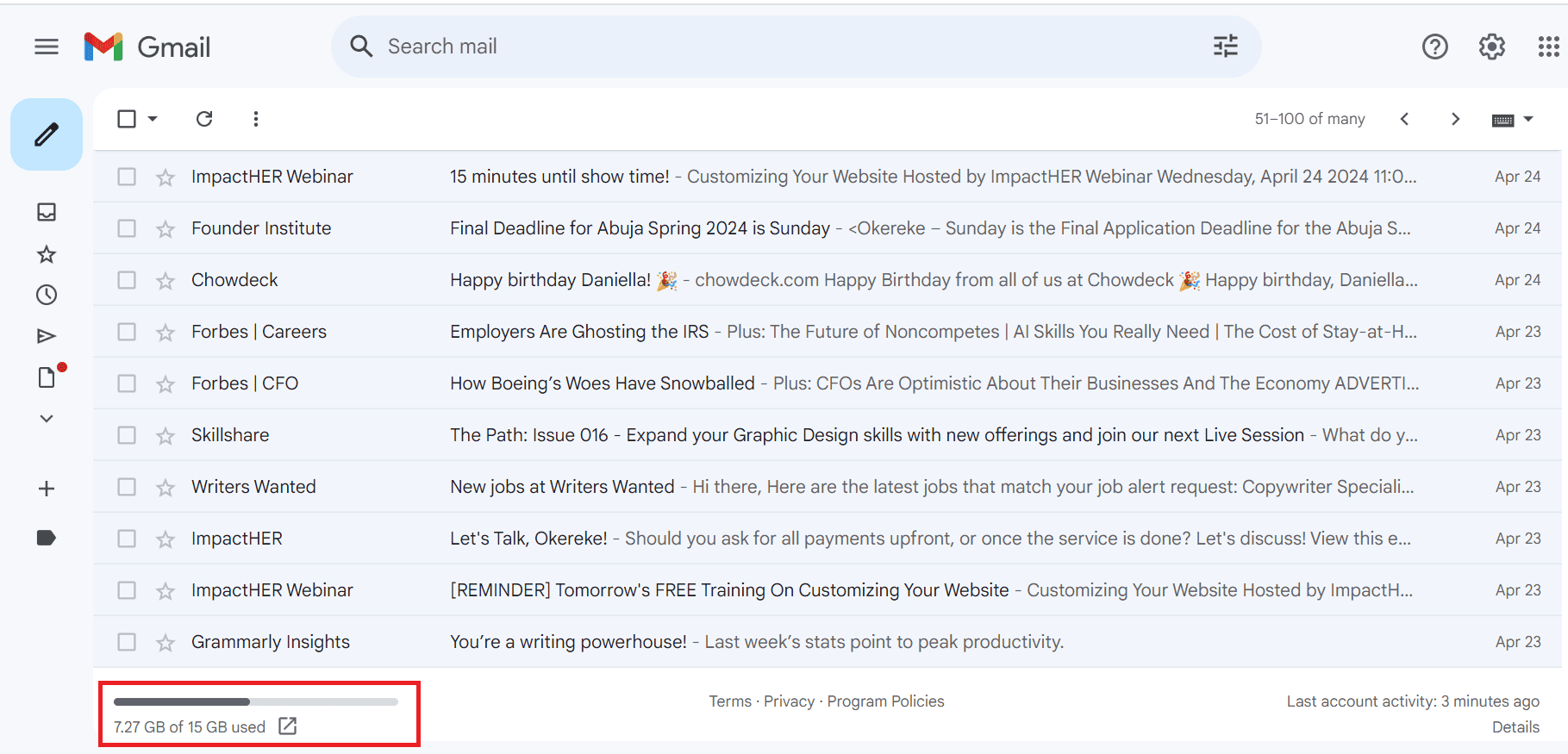
Integrations
The capability to integrate with other productivity and communication tools, such as calendar applications, project management software, Google Calendar, and customer relationship management (CRM) systems, can significantly enhance your workflow efficiency and is essential for professional email service.
Security
The need for secure email communication cannot be overstated. Knowing that your data and conversations are protected gives you a sense of peace. Opting for a provider with end-to-end encryption gives you an edge.
Encrypted emails are secure and private during transmission. For your business security, you can also consider multi-factor authentication and regular security audits to ensure the integrity of the email service you receive.
Additionally, effective spam filters help you maintain a clutter-free inbox and protect users from phishing attempts and malicious content.
Pricing
There are several free email service providers with great features, while some providers charge. So, depending on your budget and the features you need, you’ll want to decide which one solves your needs. However, ensure it is reliable and secure, comes with an ad-free inbox, and allows users to open multiple email accounts.
Ease of use
Ease of use is a key consideration when deciding on a service provider. Here are questions to ask.
- Is the inbox organized?
- Is it accessible on all your devices?
- Is it intuitive?
- Is it an ad-free email service?
- What is the customer support like?
An intuitive and well-designed interface can significantly improve productivity and user satisfaction. On the other hand, prompt access to reliable customer support, whether through documentation, email, or live chat, is crucial for resolving issues promptly and effectively.
Scalability
Whether you are running a small coffee shop, bakery, travel agency, or web design agency, your choice should be scalable. By “scalable,” we mean that it should be able to accommodate your business’s growth and evolving requirements.
Reputation and reliability
One way to know about the reputation and reliability of email service providers is to check existing customer reviews. When you check online reviews, you can find out which provider has a strong uptime and consistent access without disruption.
A provider with good customer service will be considered more reliable because issues or concerns are addressed promptly, minimizing downtime and frustration. For example, Proton Mail is considered a reliable service provider because of its reputation as a well-secured Swiss email service.
Opting for a provider that offers scalable plans, advanced features, and reliable customer support ensures that the email infrastructure can adapt to the expanding needs of the business.
Read also: Email Hosting: A Guide for New Business Owners
10 Email Providers Worth Considering
Several options stand out when considering email service providers for small businesses, each with unique features, advantages, and potential drawbacks. Let’s take a brief look at a few leading email service providers.
Gmail (Google Workspace)
Google Workspace (Gmail) is the best free email service provider offering robust real-time collaboration. The real-time collaboration lets you use other Google services simultaneously with your teammates. As a free email service provider, Gmail allows you to create multiple email accounts for better organization.
Google offers 15 GB of free storage on the free plan and 30 GB on the paid starter plan. The service has powerful search functionality, allowing users to find specific emails quickly, even within large archives.
Gmail integrates with other Google Workspace tools, including Docs, Drive, and Meet. It offers spam protection and advanced administrative controls that can be accessed conveniently via mobile apps.
Pros
- Easy-to-use interface which is suitable for collaborative tasks
- Real-time collaboration features for seamless teamwork
- Free access to other Google services
- You can categorize emails using the priority inbox feature
- Effortless integration of tools for increased productivity
Cons
- Limited functionalities compared to some desktop apps
- Separate purchases are required for the domain
- Gmail’s business model relies on targeted advertising, which means it is not ad-free, and your emails may be scanned for keywords to serve relevant ads
- Storage limitations
GMX Email
GMX Mail, also known as Global Mail Exchange, is a very effective email provider but is less popular than other free email services. GMX has an autoresponder that automatically replies to receive emails at a designated time.
To help your business, GMX Mail allows you to create filtering rules that determine how you handle email messages. The mail collector feature lets you organize all your alias addresses and email accounts from other providers.
You can plan your work itinerary with the GMX organizer, a comprehensive online calendar app. It helps you schedule meetings, set reminders, arrange appointments, and share your calendars with your employees.
Additionally, GMX Mail allows you to create temporary email addresses and provides the MailCheck browser extension to alert you to incoming mail.
Pros
- Mobile apps for Android and iOS
- Up to 65 GB of cloud storage space
- Highly secure
- Imports social media contacts
- Custom domains
- Multiple alias addresses
Cons
- Ad-supported
- The interface can be confusing
- Limited third-party integrations
- Does not allow encrypted emails
AOL Mail
AOL Mail, which stands for America Online Mail, is a popular free provider that allows you to attach files quicker than any other service. One unique feature of AOL Mail is that it allows you to link to other email accounts, such as Gmail and Outlook.
With key features like a customizable inbox layout for personalization, keyboard shortcuts for common actions, organization tools (folders and labels) for keeping your inbox in order, and integration with other AOL services, AOL mail stands as an ideal choice for your business.
AOL Mail also provides a contact management system that allows you to store and organize your contacts for easy access. The advanced search functionality of the mail allows you to search for specific emails within their inbox, saving you time and effort.
Pros
- AOL mail has a simple user interface
- Integrated message system for quick communication
- Virus protection
- Custom short domain names
- Customizable spam filtering
Cons
- Outdated user interface
- Limited features
Neo
Neo offers comprehensive email hosting and growth tools for small businesses. Customers get a custom email address and a free domain name. Neo also provides essential tools for managing calendars and contacts, creating websites, and building customer relationships through email marketing and appointment scheduling. The platform includes mobile and web applications for easy access from anywhere.
Neo stands out from traditional email services with unique features, including an AI-powered email composer, open and click-through rate tracking, personalized signature designer, and follow-up reminders. The platform streamlines operations for growing businesses, offering email marketing, appointment scheduling, contact group management, and customizable email templates to capture more leads effectively.
Neo is designed for busy professionals and businesses. It provides easy access to a powerful email and calendar system with up to 100GB of storage, a free domain name, and a one-page website setup. It also includes innovative features and tools tailored for business growth within a unified platform.
Pros
- Custom email address and free domain name
- Comprehensive management of calendars and contacts
- Tools for building a website and email marketing
- Appointment scheduling tools
- AI email writing, CTR, and open rate tracking
- Accessible on all devices with iOS, Android, and web apps
- Competitive pricing with various plans
Cons
- Limited to a single one-page website with a free domain
- Higher-tier features are only available in more expensive plans
Outlook.com (Microsoft 365)
Microsoft (Outlook.com) is one of the best email service providers, offering many key features, such as ransomware detection, access to Microsoft 365, focused inbox, and email encryption.
Microsoft Outlook lets you integrate with and connect with Microsoft 365 products such as Word, Excel, and OneDrive. Its effective built-in calendar informs you of your activities and events, and its interface is familiar to many business users.
Even as one of the best email service providers, Microsoft Outlook does not offer end-to-end encryption in the traditional sense. Instead, it supports S/MIME and Microsoft 365 Message encryption, which requires you to enable the encryption.
Pros
- Great tools to help prioritize and organize emails
- Seamlessly integrates with other Microsoft 365 products (OneDrive, Skype, and Office 365)
- Familiar interface for numerous business users
- Offers robust security features such as two-factor authentication, encryption, and spam filtering to protect user data
- Users can personalize their inbox layout and design to suit their preferences
Cons
- Limited customization compared with some competitors
- An annual commitment is required
- Monthly costs are higher than other solutions
- Steep learning curve
Yahoo Mail
This is another leading email service provider offering many user features. Its intuitive user interface makes it easy to manage your email efficiently.
It caters to your business needs with key features like customizable themes and email templates to personalize your look, end-to-end encryption, attachment preview to help you preview attachments without downloading, and virus protection to keep you away from unwanted and harmful emails.
Yahoo Mail flawlessly integrates with multiple tools, including Dropbox and Google Drive, for easy attachment and sharing of files. Yahoo Mail, for its security, makes use of two-factor authentication against unauthorized access
Pros
- Seamless integration with Yahoo News, Yahoo Finance, and Yahoo Calendar
- User-Friendly interface
- Yahoo Mail has spam filters
- Generous storage space for emails, attachments, and files
- User-friendly mobile app for iOS and Android devices
Cons
- Privacy Concerns (data breach and privacy violations)
- Displays advertisements within the interface, which can be distracting and detract from the user experience
- Yahoo Mail lacks comprehensive support
- No ability to set folders
ProtonMail
According to online reviews, Proton Mail is the most secure email service provider, offering end-to-end encrypted email for enhanced security and privacy. It also offers cloud storage and a secure calendar, all in compliance with Swiss laws for maximum data protection.
One of its key features is that it self-destructs messages for added confidentiality. It has a limited 500 MB storage capacity with five themes and up to 25 MB attachment limit. Proton Mail also has an autoresponder feature, allowing users to respond to every incoming email automatically.
All of these come at a price, billed either monthly or annually. However, you can try a personal free version before opting for a paid version. Like some other email service providers like Yahoo Mail and Gmail, Proton Mail offers Proton Drive, which is generally positioned as a secured alternative to Google Drive.
Pros
- Enhanced privacy and security features
- Secure file sharing
- Customer data is stored in Swiss data centers for maximum protection
- Zero-access encryption ensures confidentiality
Cons
- Proton mail is expensive
- Limited additional applications are available
- Limited email space per user in the business plan
- There are some restrictions even in the Unlimited edition
- Limited integration
- Doesn’t encrypt email subject lines
Tuta
Tuta is a secure, privacy-first email and online collaboration solution that leverages quantum-safe encryption to protect your communications. It offers a robust suite of free tools—including email, calendar, and contacts—with additional features available on paid plans to suit both individual and organizational needs.
By combining end-to-end quantum-resistant encryption with advanced multi-factor authentication (supporting TOTP and U2F), Tuta ensures that your data remains confidential and secure. The platform is completely ad-free, powered by open-source apps, and operates from its own servers in Germany—making it a strong choice for those who value data sovereignty and privacy.
For organizations seeking a comprehensive solution, Tuta’s paid plans provide generous storage, custom domains, and enhanced collaboration tools like shared mailboxes and branded interfaces. Also, Tuta does not use Google Push for email notifications. That makes it a great Gmail alternative for anyone looking to quit Google 100%.
Pros
- Cutting-edge quantum-safe encryption for robust security
- Free, ad-free, and open-source applications for email, calendar, and contacts
- Advanced multi-factor authentication across all platforms
- Servers hosted in Germany, ensuring high data privacy standards
- Commitment to sustainability through green energy usage
- Customizable features and collaborative tools (available on paid plans)
Cons
- Some advanced features and additional storage are only available with paid plans
- Tuta Drive is still in development
- Transitioning from mainstream email services may involve a learning curve
Zoho Mail
Zoho Mail is a reliable free email service provider with a list of accessible paid plans. The plan you choose depends on your needs. Zoho also provides a complete set of office tools, such as chat, video conferencing, and a calendar.
With features like a free domain name for businesses, a mobile app for on-the-go access, spam filters, and admin panel configurations, Zoho Mail stands tall as a secure email service. It also has other unique features, such as TeamInbox and ZeptoMail.
TeamInbox enables you to create common inboxes that can be shared amongst your team for effortless collaboration. ZeptoMail, on the other hand, helps you reliably deliver all essential transactional emails.
Pros
- Availability of free domain name email for sending a business email
- Mobile apps for convenient access
- Competitive pricing plans
- Additional services and integrations for a coherent environment
Cons
- Limited storage capacity in free plans
- User interface and features may not be as extensive as some competitors
- Limited functionalities in comparison to some desktop apps
iCloud Mail
iCloud Mail, the sixth on this list, is an ESP provided by Apple as part of its iCloud suite. This comes with many features, such as cloud storage and an online office suite, contributing to operational efficiency.
You can get an iCloud mail address if you have an Apple ID. This address lets you send, receive, and manage emails within the iCloud system. iCloud Mail integration features allow you to integrate with other Apple services such as iCloud Drive, Calendar, and Contacts.
It has a free plan, however, with iCloud+ (the premium cloud service) you can customize your email address with a specific domain name for your business.
Pros
- iCloud Mail has a seamless integration
- Easy to use with a clean and intuitive interface that is familiar to Apple users
- Robust security measures to protect user data
- Cross-device syncing across Apple devices, with emails, contacts, and calendars, is seamless on iCloud mail
- Spam filtering to keep unwanted emails out of the inbox
- Integration with Apple Services like iCloud Drive, Calendar, and Contacts, offering a unified experience
Cons
- Limited Customization
- Dependency on the Apple ecosystem
- iCloud mail has storage limitations
- Lack of advanced features
Canary Mail
Canary Mail is a known email service provider designed for macOS and iOS devices. It focuses on privacy and security with a user-friendly interface. The application’s emphasis on end-to-end encryption makes it a reliable choice for handling confidential information in your business.
Canary Mail is known for its quick load time, making it a suitable choice for businesses that need to manage large volumes of email efficiently. With Canary Mail, you can leverage AI to prioritize and automate your email communication, making it easier.
It operates on a freemium model, offering a free version with optional in-app purchases. You can access Canary Mail even if you have budget constraints. Canary Mail also allows you to create multiple email addresses for flexibility and easy management on the platform.
Pros
- Efficient email organization
- Built-in AI email writing assistant in paid plans from $20/year
- Smart prioritization to improve productivity and focus
- Desktop and mobile apps (Android and iOS) plus cross-device sync
Cons
- Full access to AI not included in the free version
- Limited free features
- Doesn’t come with a domain
- It is relatively expensive
- No productivity or collaboration tools
Advantages and Disadvantages of Free vs Paid Email Providers
There are two types of email service providers (ESPs): free and paid. With a free ESP, you can receive essential email services without paying a subscription fee. However, with paid ESPs, you must pay a regulated subscription token.
To help you further, here’s an overview of their advantages and disadvantages.
Advantages of free email service providers
- Cost: The primary advantage of free email service providers is that they are free to use, making them accessible to anyone with internet access.
- Ease of access: Free email services are typically easy to set up and use, making them a convenient option for personal use or those just starting with email.
- Basic features: They offer the essential features needed for communication, such as email, contacts, and basic file storage.
- Large user base: Free email services often have a large user base, which can be advantageous for communication. A widely used email platform makes connecting with friends, family, colleagues, and businesses easier.
- Integration with other services: Many free email service providers integrate with other services and platforms, such as cloud storage, productivity tools, and social media networks. This integration can enhance users’ productivity and convenience.
Disadvantages of free email service providers
- Limited storage: Free email accounts usually come with limited storage space, which can be restrictive for users who receive a lot of emails or want to store large attachments.
- Ads: Free email services are often ad-supported, meaning users may have to contend with advertisements within the email interface.
- Security concerns: A free email service may offer less robust security features than paid alternatives. Users’ data may be at a higher risk of unauthorized access, hacking, or phishing attacks, especially if they do not take proper security precautions.
- Lack of customization: Free email accounts typically have limited email address and domain customization options. Users may be restricted to using generic email addresses provided by the service, which can be less professional for businesses and organizations.
Advantages of paid email service providers
- Enhanced features: Paid email services often have more advanced features, such as increased storage, better security options, and client support.
- Custom domains: Many paid providers allow users to use custom domains for their email addresses, which can benefit businesses and professionals.
- No ads: Paid email services typically do not display ads, providing a cleaner and less distracting user experience.
- Enhanced security: Paid email providers often offer more robust security features than free email services. These can include advanced encryption methods, stronger authentication measures, and better protection against malware and phishing attacks.
- Customer support: Subscribers to paid email services usually have access to dedicated support channels. This can be invaluable when troubleshooting issues or seeking assistance with account-related matters.
- Additional features: Paid email providers often offer additional features and functionalities beyond basic email services. This can include tools for task management, calendar integration, file storage, and collaboration.
Disadvantages of paid email service providers
- Cost: The associated cost is the most obvious drawback of paid email services. This can be a significant factor for individuals or businesses operating on tight budgets.
- Complexity: Some paid email services may have a steeper learning curve or require more technical knowledge to set up and use effectively.
- Overkill for casual users: For individuals who only require basic email functionality, the additional features of paid services may be unnecessary and not worth the cost.
- Dependency on the provider: When using a paid email service, users depend on the provider for their email needs. If the provider experiences downtime or other issues, this can disrupt communication and workflow.
- Limited storage: Some paid email plans, particularly for lower-tier subscriptions, may limit storage space. Users may need to upgrade to higher-priced plans to access more storage capacity.
- Potential for lock-in: Switching away from a paid provider can be more challenging than free services. Users may be hesitant to migrate their emails and contacts to a new provider, leading to a sense of vendor lock-in.
- Privacy concerns: While paid email providers typically offer better privacy protections than free alternatives, there may still be concerns about data privacy and how user information is handled. Users should carefully review the provider’s privacy policy and terms of service.
Read also: What is an AI Email Writer? 8 of the Best AI Email Writers
Implementing Your Chosen Email Provider
The process doesn’t end with weighing the pros and cons of different email service providers; there’s something more. After making your choice, you must follow a step-by-step procedure to implement your chosen email service.
Setting up an email account with your chosen provider
Follow these general steps when setting up an email account with your chosen provider.
- Create an account: Visit the provider’s website and follow the prompts to create a new account. You may need to provide personal or business information, such as your name, desired email address, and a secure password.
- Custom domain (if applicable): If you’re using a paid email service provider that offers custom domains, follow the provider’s instructions to link your domain to the email service.
- Configure settings: Once the account is created, you can access the settings to customize your preferences, such as your email signature, notification settings, and security options.
- Import contacts: If you have existing contacts, consider importing them into the new email account to ensure a smooth transition.
- Set Up security measures: To enhance account security, enable two-factor authentication (2FA) or any additional security features provided by the email service.
- Test sending and receiving: Send a test email to ensure that the account functions properly and that incoming emails are being received.
Training your team to use the new email platform
Beyond you, your entire workforce must know how to use the email platform perfectly. To ensure that team members can effectively utilize the new email platform, consider the following recommendations.
Training sessions
Periodically conduct training sessions to familiarize team members with the new email platform’s features and functionalities. Depending on the team’s location, this can be done in person or virtually.
Documentation
You should provide comprehensive documentation or user guides that outline how to perform common tasks within the email platform, such as composing emails, managing contacts, and using calendar features.
Hands-on practice
Motivate your team members to practice using the new email platform in a simulated environment. This can help them become comfortable with the interface and features before fully transitioning from their previous email system.
Q&A sessions
Host Q&A sessions where team members can ask questions and receive clarification on any aspects of the new email platform that may be unclear.
Customer support
Establish a support system for team members to contact for assistance or troubleshooting as they adapt to the new email platform. This could include designated individuals within the organization who are proficient with the platform and can provide guidance.
Read also: Email Client Essentials: Choosing the Best for Small Business Success
Conclusion
Email communication is an important aspect of running a successful small business today. The best email service provider will depend on your business size, budget, needs, and team sophistication.
Gmail or Yahoo Mail are great options if you are looking for the best free email provider. Conversely, paid email clients should consider Proton Mail or Zoho Mail.
Whatever your choice, reliability, security, and user-friendliness should be considered before deciding on a service provider.
Frequently Asked Questions
What makes an email provider “the best” for small businesses?
“The best” email provider for small businesses offers essential features, including a custom domain, reliable customer support, strong security measures, scalability, and integration with productivity tools without burning holes in your wallet.
How much should a small business expect to pay for a reliable email service?
A small business can expect to pay as little as $1 monthly for budget email hosting services. However, for more comprehensive and feature-rich email hosting, the cost may range from $2.99 to $18 per user per month, depending on the provider and the business’s specific needs.
Can a business use a free email provider professionally?
While businesses can use free email providers, it may not convey a professional image. A paid email service offers features such as custom domains, enhanced security, and reliable support, which can be more suitable for professional use.
What are the security risks of using an email service, and how can they be mitigated?
The security risks of using an email service include phishing attacks, data breaches, and malware. These risks can be mitigated by using strong, unique passwords, enabling two-factor authentication, being cautious with email links and attachments, and regularly updating security software.
How do I migrate my existing mail to a new provider?
To migrate your existing email to a new provider, you can typically use the IMAP or POP3 protocol to transfer your emails and contacts. Many email providers also offer migration tools and support to assist with the process.
Are there any email providers specifically designed for certain industries?
Yes, there are providers specifically designed for certain industries. These providers offer tailored features and compliance with industry regulations, making them suitable for businesses with industry-specific needs.
What is the difference between hosted email and using an email service provider?
Hosted email refers to having an email server exclusively for your organization, while using an email service provider involves email hosting on a shared platform, often with additional features and support.
How can I integrate my email provider with other tools and platforms I use for my business?
You can integrate your email provider with other business tools and platforms by using built-in integrations, third-party apps, or APIs offered by the email provider. This allows for seamless communication and workflow efficiency.
Can I customize my email domain with these providers, and how?
Yes, you can customize your email domain with most providers. To do this, you typically need to access the domain settings within your email provider’s dashboard and follow the instructions to add and verify your domain. This allows you to create professional and branded email addresses for your business.
What support options should I look for in an email provider?
When choosing an email provider, look for support options such as 24/7 customer service, live chat, email support, comprehensive online resources, and a user community. These options can help address any issues or concerns you may have.

